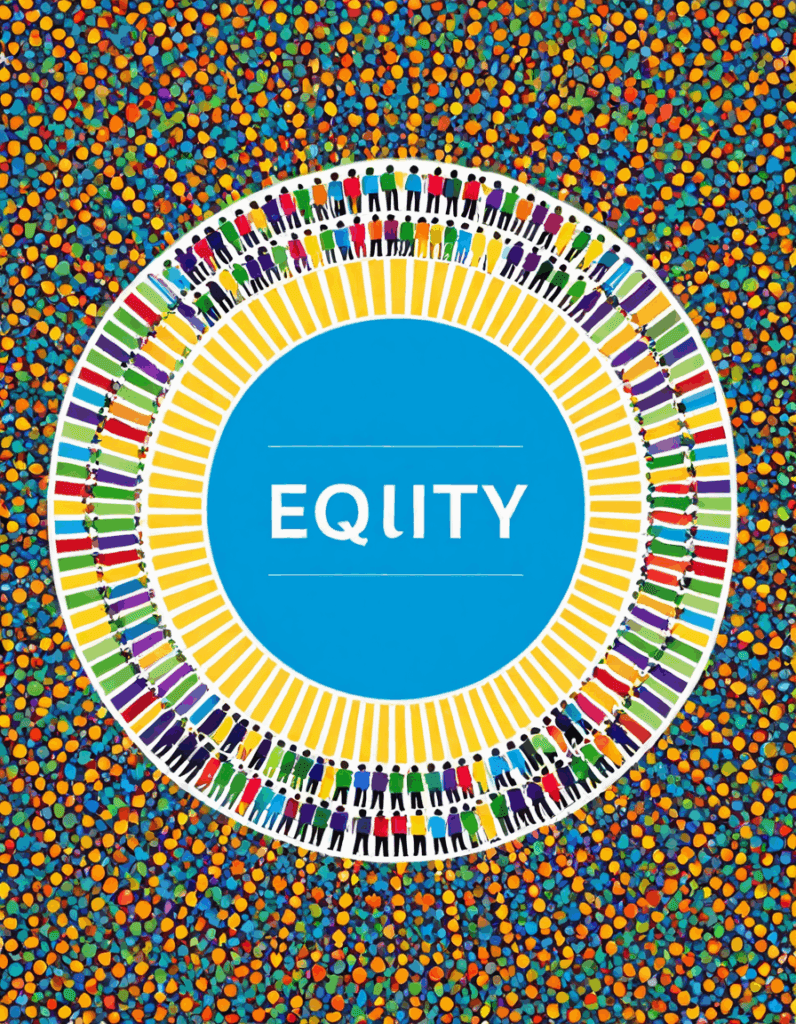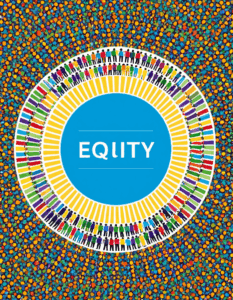Understanding the definition of equity is essential, especially in today’s society where fairness and justice are paramount. Often confused with equality, equity extends beyond simply treating everyone the same. It addresses the unique challenges faced by different individuals and groups and creates conditions where everyone can thrive. This nuanced perspective is crucial for families grappling with the complexities of addiction, which disproportionately affects marginalized communities. By recognizing the various dimensions of equity, we become better equipped to support one another, particularly parents navigating the heartbreaking journey of raising a child in the throes of addiction.
Equity encourages us to see beyond surface-level similarities, pushing us to acknowledge historical injustices and systemic discrimination. Disparities such as socioeconomic status, race, and access to education profoundly shape the lives of parents and children dealing with addiction. Understanding these disparities illuminates why resources and support must be allocated thoughtfully. At Mothers Against Addiction, we believe that embracing the definition of equity fosters a healthier society, ultimately empowering parents, children, and communities to recover and heal from addiction.

Defining Modalities of Equity in Different Sectors
Equity doesn’t just wear one face; it transforms across various sectors, providing tailored solutions to unique situations. Let’s define modalities of equity that stand out in different areas of society. Each modality plays a crucial role, especially when parents of children struggling with addiction seek avenues for support and resources.
1. Economic Equity
Economic equity emphasizes fair access to resources and opportunities, a fundamental necessity for families affected by addiction. Companies like Microsoft have taken commendable steps to integrate inclusive hiring practices, allowing individuals from marginalized communities to find meaningful employment. By creating job training programs that cater to underrepresented populations, they demonstrate a commitment to leveling the playing field. This approach doesn’t just benefit businesses, it creates pathways for parents seeking stable jobs that support their families, especially during tough times.
2. Educational Equity
Our children deserve the best education, but educational equity often feels out of reach, especially for those in under-resourced areas. Organizations like the Gates Foundation are addressing these gaps by funding initiatives aimed at uplifting struggling schools and ensuring all students get a fair shot. Parents who have lost children to addiction will recognize the importance of an enriching academic environment—they know how crucial it is for nurturing futures. By advocating for policies that level the educational playing field, we work toward brighter prospects for all children, reducing the risk factors associated with addiction.
3. Healthcare Equity
Everyone should have the right to access healthcare irrespective of financial standing. The Affordable Care Act (ACA) has made significant progress in ensuring coverage for millions of Americans, particularly vulnerable populations. This approach is vital for families coping with addiction; access to mental health services and addiction support can change lives. When parents know they can get help without fearing hefty medical bills, they’re more likely to seek the assistance they need. Addressing healthcare inequities fosters a healthier society, where addiction treatment is available to all.
4. Social Equity
Social equity underpins a fair society by promoting inclusiveness and diversity. Major businesses like Starbucks have implemented equitable policies for LGBTQ+ individuals, indicating a broader commitment to social justice. These steps foster safe and supportive spaces for everyone, including families affected by addiction. When society embraces diversity, we dismantle stigma, creating environments where open dialogue about addiction can flourish. Parents will find solace knowing that their struggles are validated in spaces where equity reigns.
5. Environmental Equity
Equitable access to a safe environment is crucial for all communities, particularly those disproportionately affected by pollution or neglect. Organizations like the Sierra Club are championing environmental justice by advocating for lower-income neighborhoods burdened by environmental hazards. An equitable environment allows families to thrive. By ensuring that everyone enjoys the same quality of life, we lay the foundation for healthier communities less susceptible to addiction.

Define Debrief: Understanding Equity’s Impact Post-Implementation
To truly grasp the definition of equity, it’s vital to engage in a debrief after implementing equity-based policies. Reviewing outcomes allows us to see what works and what doesn’t. Without this step, programs risk failing to meet their intended goals or might miss valuable community feedback.
For example, cities with equity-driven transportation initiatives frequently gather input from residents post-implementation. When community voices shape the evolution of these programs, service delivery improves significantly. Similarly, families affected by addiction can share insights about access to resources or the adequacy of support systems. Recognizing this allows us to refine our efforts and better address the needs of all families, particularly those in dire circumstances.
Define Duress: Equity in the Context of Coercive Situations
In some cases, we must define duress as it relates to inequity. Many individuals, particularly those facing socioeconomic challenges, often make decisions under pressure, which doesn’t reflect their authentic needs. This concept is essential for understanding equity’s role in shaping fair outcomes.
Take, for instance, the legal system where individuals may feel coerced into accepting unfavorable plea deals. Many times, disadvantaged families accept terms due to pressure, highlighting systemic issues within our judicial processes. When we recognize these situations, we build awareness necessary for advocating equitable treatment in our legal systems. By mitigating coercive situations, we work toward crafting a truly just society, which is vital for everyone, including families battling addiction.
Innovative Practices Driving Equity Forward
Innovative practices play a significant role in advancing equity across sectors. Technology, community engagement, and policy reform offer pathways to drive this mission forward. Platforms like LinkedIn create opportunities for underrepresented individuals by connecting them with potential employers, thereby promoting a diverse professional landscape.
Grassroots movements also set the stage for impactful policy changes, insisting on equity for all. The “Fight for $15” movement is a prime example; advocating for a living wage ensures low-income workers can meet basic needs. These initiatives resonate particularly with families grappling with addiction, who often face financial instability. When communities unite to demand equitable treatment, they pave the way for real change.
Reflecting on Equity’s Ongoing Journey
The definition of equity is evolving, and its critical role in fostering just societies becomes increasingly apparent. As we acknowledge the persistent disparities, it’s essential to invest in equity continually. Embracing diverse perspectives and initiating open dialogues will facilitate healing and understanding, particularly for parents navigating the trauma of addiction.
By fostering a collective commitment to equity, we can envision a world where every person, irrespective of background, is given the chance to thrive. At Mothers Against Addiction, we advocate for equitable solutions that uplift families facing addiction, paving the way for a healthier, more compassionate society. It’s time we actively work toward dismantling systemic barriers, crafting pathways that lead to healing and recovery for all.
For families in the thick of it, remember—equity isn’t just a concept; it’s a lifeline.
Definition of Equity: Meaning and Importance in Society
Understanding Equity in Everyday Life
When folks talk about the definition of equity, they’re diving into the idea of fairness and justice in different situations. It’s not just about treating everyone the same, but rather recognizing that each individual’s needs and circumstances are unique. For instance, think about how scissor Lifts For rent make it possible for people to reach high places during construction—ensuring everyone has the right tools at their disposal can create a fair working environment. This concept of equity helps uphold social structures by ensuring that assistance is equally accessible to those who need it most.
Trivia Time: Equity’s Impact
Did you know that the concept of equity has roots in ancient cultures? In Ireland, the Blarney Stone is believed to bestow the gift of eloquence upon those who kiss it. Just like the eloquence that comes from fair conversations, equity allows for better communication and understanding among diverse groups. That’s crucial when discussing policies that impact people’s everyday lives, especially when the recent Ford Layoffs have forced many to re-evaluate their career paths. Equity aims to mitigate these challenges by offering support and resources tailored to individual needs.
The Importance of Equity in Society
Equity plays a significant role in fostering a sense of community and shared responsibility. When parents face the harsh reality of addiction, for example, finding effective treatment like Suboxone used For recovery shows the importance of equitable access to health resources. Imagine if parents didn’t have the knowledge of available treatments; the outcomes could be dire. Alongside this, the weather can affect how families navigate these challenges, just like the changing Fallbrook CA weather can impact daily life. Engaging in community discussions about equity means everyone has a seat at the table, fostering connections and solutions that benefit all.
So, the next time you ponder the definition of equity, remember that it’s about more than policy—it’s about making everyday life better for everyone, in all aspects, from securing fair employment to ensuring that essential resources are readily available.




























